Quality Assurance
We guarantee top-quality epoxy resin products that are made to achieve the highest safety standards with our food-safe resin coating, ensuring your peace of mind.
When moisture threatens your projects, ordinary adhesives fail fast. Epoxy King's moisture-resistant epoxy formulations create impermeable barriers that protect against water damage, humidity, and chemical exposure. Our waterproofing resin systems deliver lasting protection for everything from basement floors to marine applications where standard materials simply can't survive.
Water-resistant resin is a marvel of polymer chemistry, crafted to form impenetrable moisture barriers once cured. These aren't mere adhesives; they're engineered waterproofing solutions with molecular structures that defy liquid intrusion while standing strong against constant dampness. Featuring cross-linked polymer networks with ultra-low permeability, these resins create seamless membranes at the molecular level, blocking water effortlessly.
Remarkably, they maintain key properties like adhesion strength and chemical resistance without compromise. Professional contractors rely on these systems for crucial projects where moisture could wreak havoc or cause structural failures. The result? A durable protective coating that preserves its waterproof qualities for decades in even the most demanding environments.
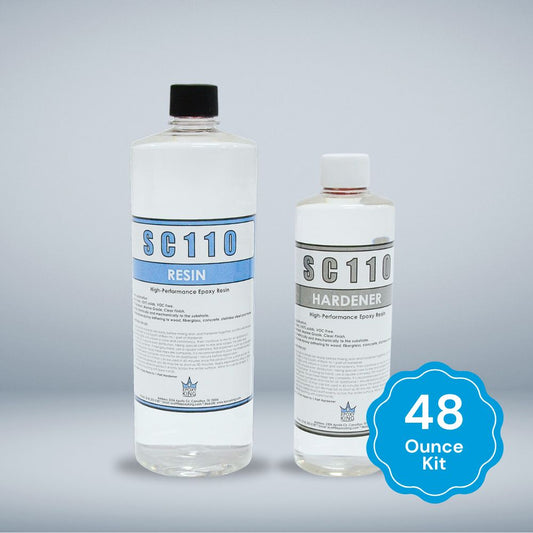
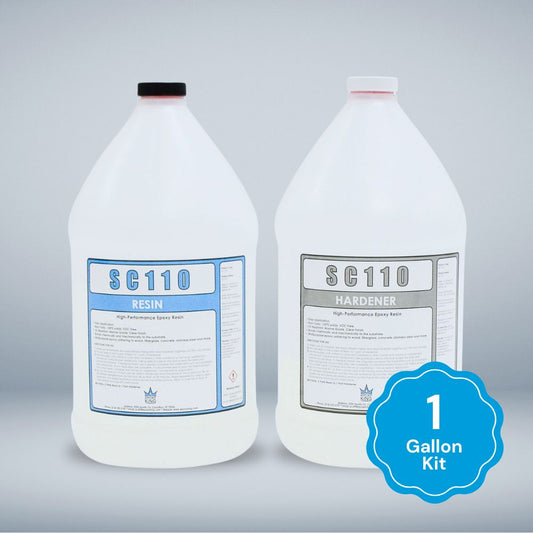
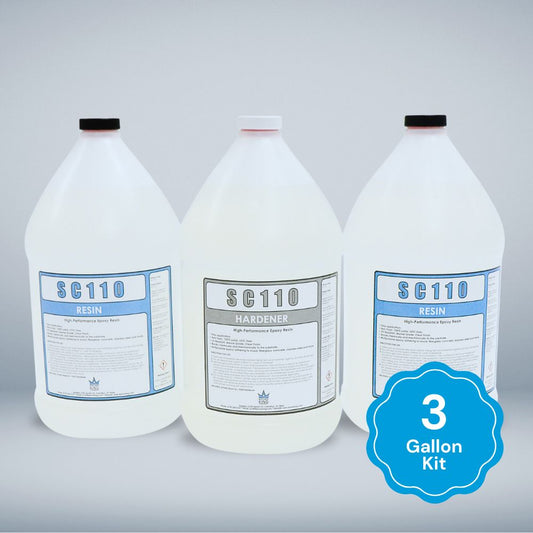
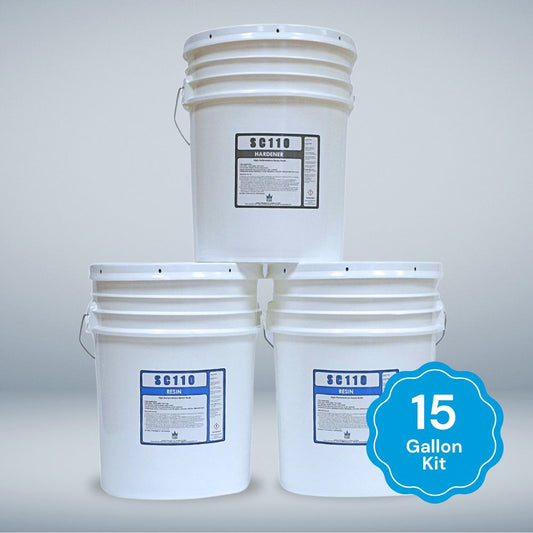
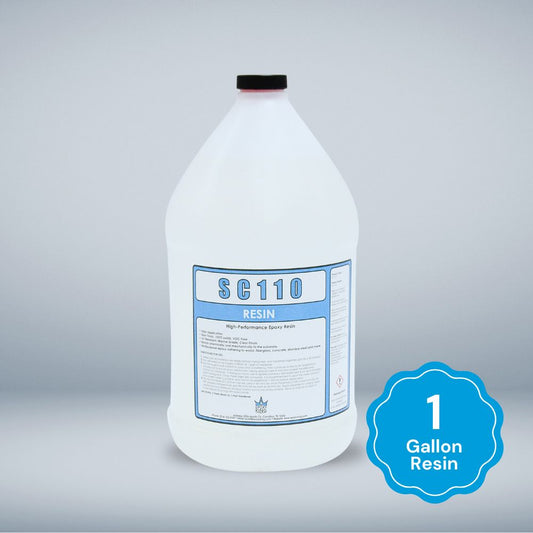
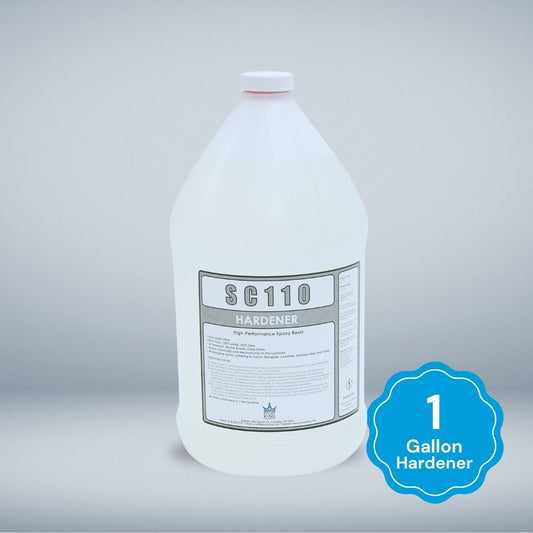
Quality moisture-resistant epoxy creates seamless, impermeable surfaces that prevent water penetration entirely. Unlike mechanical fasteners or overlapping materials that create potential leak points, properly applied resin coating forms continuous barriers without weak spots.
Many sealant epoxy formulations bond effectively to damp substrates where other materials fail completely. This capability proves crucial for repair situations where complete drying isn't practical or possible.
Waterproofing solutions must resist more than just water - they face acids, salts, cleaning chemicals, and other aggressive substances. Quality systems maintain their protective properties even when exposed to chemicals that would destroy conventional materials.
Beyond waterproofing, these systems often strengthen underlying substrates. Concrete surfaces treated with penetrating sealers become more durable while gaining moisture protection, creating dual benefits from single applications.
Marine environments and outdoor applications subject materials to extreme temperature swings and UV radiation. Advanced formulations maintain their waterproofing effectiveness through these stresses while resisting the degradation that causes other materials to fail.
While initial costs exceed simple paint or basic sealers, the longevity and reliability of quality waterproofing resin systems create exceptional value over time. Consider the cost of water damage, mold remediation, and structural repairs that proper waterproofing prevents.
Below-grade applications face constant groundwater pressure and potential flooding. Impermeable epoxy resin systems create reliable barriers that protect foundations while allowing structures to handle seasonal moisture variations without damage.
Boat hulls, dock structures, and underwater equipment require materials that maintain integrity in constant water immersion. Marine-grade waterproofing solutions resist saltwater corrosion while providing the structural properties marine applications demand.
Manufacturing facilities often combine moisture exposure with chemical spills and heavy traffic. Industrial waterproofing resin creates seamless surfaces that protect concrete substrates while maintaining the durability needed for demanding environments.
Residential applications benefit from waterproofing solutions that prevent moisture damage behind tile, around fixtures, and in areas subject to regular water exposure. Quality systems prevent the mold and structural damage that plague inadequately protected areas.
Flat roofs, balconies, and architectural details require waterproofing that accommodates structural movement while maintaining leak-free performance. Flexible membrane systems provide this protection while offering longevity that exceeds traditional roofing materials.
Swimming pools and spas represent some of the most demanding waterproofing applications. Constant chemical exposure combined with hydrostatic pressure requires specialized formulations that maintain integrity under conditions that would destroy standard materials.
Transportation infrastructure faces moisture from above and below while accommodating thermal expansion and heavy loads. Structural waterproofing systems protect these critical assets while extending service life significantly.
Success with waterproofing resin depends heavily on proper substrate preparation. All contamination must be removed, and surfaces often require mechanical preparation to achieve adequate profiles for adhesion.
Moisture testing becomes critical for waterproofing applications. Substrates with excessive moisture content prevent proper adhesion and can cause long-term performance problems even if initial application appears successful.
Many applications require specialized primers that improve adhesion while providing additional moisture barriers. Primer selection affects both immediate adhesion and long-term durability under moisture exposure.
Application thickness often exceeds standard coating systems. Multiple thin coats typically provide better results than single thick applications, allowing proper cure while minimizing stress concentrations.
Holiday detection using electrical methods can identify pinholes or thin spots that compromise waterproofing effectiveness. These techniques prove especially important for critical applications where any moisture penetration could cause expensive damage.
Environmental monitoring during application and cure ensures optimal conditions for proper cross-linking and performance development. Temperature and humidity control become more critical for waterproofing systems than standard coatings.
Success with waterproofing resin depends heavily on proper substrate preparation. All contamination must be removed, and surfaces often require mechanical preparation to achieve adequate profiles for adhesion.
Moisture testing becomes critical for waterproofing applications. Substrates with excessive moisture content prevent proper adhesion and can cause long-term performance problems even if initial application appears successful.
Many applications require specialized primers that improve adhesion while providing additional moisture barriers. Primer selection affects both immediate adhesion and long-term durability under moisture exposure.
Application thickness often exceeds standard coating systems. Multiple thin coats typically provide better results than single thick applications, allowing proper cure while minimizing stress concentrations.
Holiday detection using electrical methods can identify pinholes or thin spots that compromise waterproofing effectiveness. These techniques prove especially important for critical applications where any moisture penetration could cause expensive damage.
Environmental monitoring during application and cure ensures optimal conditions for proper cross-linking and performance development. Temperature and humidity control become more critical for waterproofing systems than standard coatings.
While some moisture-resistant systems tolerate damp conditions, achieving optimal adhesion often requires moisture control during application. Surface heating, dehumidification, or specialized primers can address challenging conditions.
Commercial contractors possess specialized equipment for surface preparation, including grinding machines that create optimal surface profiles. They also have environmental controls and experience with different substrate conditions.
Professional systems often use higher-performance materials not available in retail kits. Industrial-grade primers, specialized hardeners, and professional-only additives provide superior performance that justifies their higher cost in demanding applications.
Warranty protection represents another significant advantage. Professional installations typically include material and labor warranties that protect the investment, while DIY applications void most manufacturer warranties.
Excessive water pressure can cause delamination or membrane failure. Proper system design includes pressure relief considerations and sometimes requires mechanical attachment methods beyond adhesion alone.
Some waterproofing environments involve chemical exposure that can affect system performance. Careful material selection ensures compatibility with expected chemical exposures while maintaining waterproofing properties.
The waterproofing effectiveness of cured resin depends on the density and uniformity of polymer cross-links. Proper mixing ratios and cure conditions optimize this cross-linking for maximum moisture resistance.
Water can penetrate materials through molecular diffusion, capillary action, or mechanical defects. Quality waterproofing systems address all these mechanisms through appropriate chemistry and application techniques.
Waterproofing systems must maintain adhesion under constant moisture exposure and sometimes hydrostatic pressure. This requires both mechanical and chemical bonding that remains stable in wet conditions.
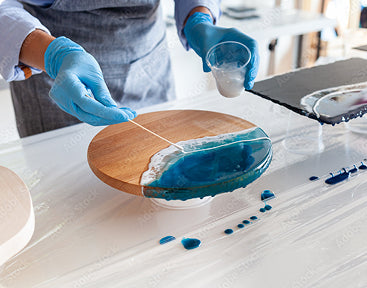
We guarantee top-quality epoxy resin products that are made to achieve the highest safety standards with our food-safe resin coating, ensuring your peace of mind.
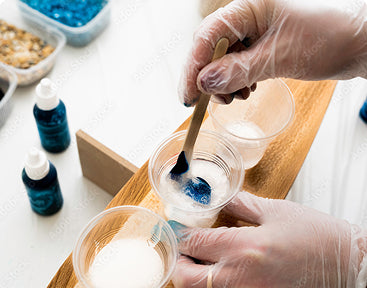
With years of experience in the industry, we have the knowledge and expertise to provide you with the best solutions for your food-safe projects.
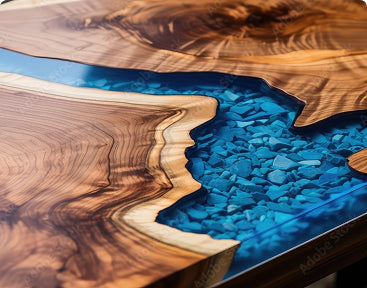
Our extensive range of epoxy resin products offers options for every need and budget, ensuring that you find the perfect fit for your project.
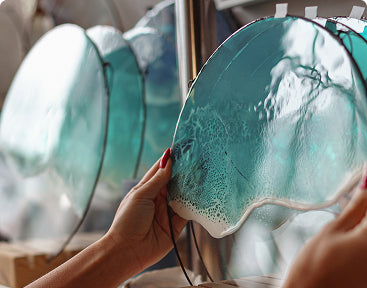
At Epoxy King, customer satisfaction is our priority. We strive to exceed your expectations with our products and service, earning your trust and loyalty.
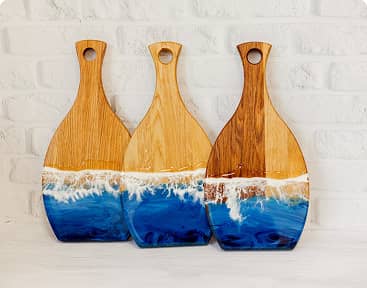
When you choose Epoxy King, you can count on reliable products and dependable service every time. Trust us for all your food-safe epoxy needs and experience the difference.
Here’s a comprehensive FAQ that covers various aspects
Quality systems properly applied typically provide 10+ years of effective waterproofing in normal service conditions. Extreme environments may reduce this somewhat, but performance still exceeds alternatives significantly.
Some formulations work in challenging conditions, but optimal results require controlled environments during application and cure. Cold weather additives and moisture-tolerant systems address some challenging conditions.
Waterproof systems prevent any water penetration under specified conditions, while water-resistant materials slow moisture transmission but may allow some penetration over time. True waterproofing requires specialized formulations.
Thickness requirements vary by system and application, typically ranging from 10-60 mils. Critical applications may require thicker builds, while decorative applications might use thinner systems with different performance expectations.
Small areas of damage can often be repaired with proper surface preparation and compatible materials. However, widespread problems usually require complete removal and reapplication for reliable results.
